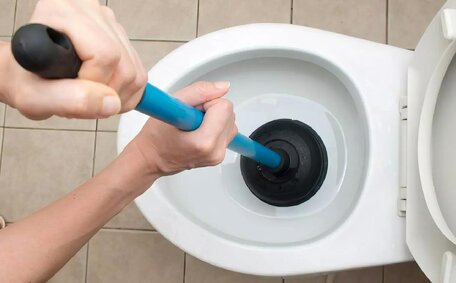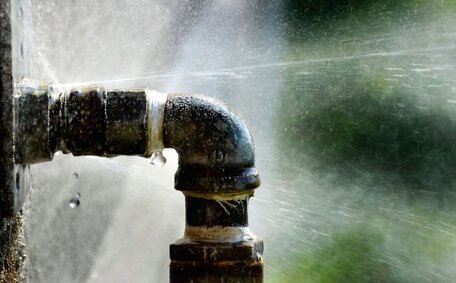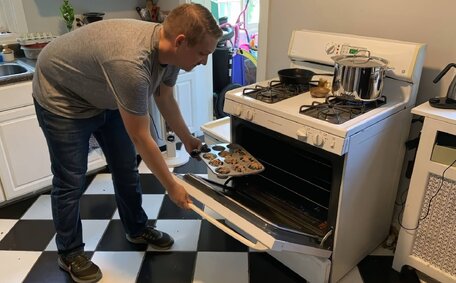Introduction to Septic Tanks
Septic tanks are essential for properties without main sewer connections, handling wastewater from all household sources. These tanks separate solids into sludge and lighter waste into scum. When the tank is full, it requires immediate maintenance to prevent malfunction.
In areas like Brighton-Le-Sands without municipal sewers, regular septic tank maintenance is crucial for managing onsite wastewater and sewage efficiently. When functioning correctly, these systems offer an effective solution, diving wastewater away from backing up into your living areas. To prevent complications from a full septic tank, regular maintenance and periodic pumping are essential.
Several unmistakable signs indicate your septic tank needs cleaning to avoid failure. This guide will detail key warning signs, preventive strategies, and actions to take when septic failure signs occur.
Recognizing Early Signs of Septic Tank Failure
Early detection of septic tank issues is vital for delegating timely maintenance, minimising the likelihood of costly complete system repairs. Key indicators prompting immediate septic tank pumping include:
- Sewage backing up into sinks, showers or toilets
- Gurgling sounds coming your way from plumbing fixtures
- Slow draining fixtures
- Lush, green grass over the drain field
- Notable water accumulation or soggy soil around septic areas
- Strong sewage odours rising near your septic tank
Regular cleanings every 3-5 years and annual inspections can prevent problems from escalating into emergencies.
Foul Odors
Foul sewage odours around your home signal a full septic tank requiring immediate attention. These unpleasant smells originate from hydrogen sulphide gases produced by the anaerobic digestion of accumulated sludge at the bottom of your full septic tank.
Solid buildup decreases available space for wastewater, warning that your sewer system might need attention. Health hazards arise from breathing gases like methane and hydrogen sulphide. The stench also makes spending time outdoors unbearable.
If gases have no vent, they seep upwards through blocked outlets, emerging in your garden.
Immediate septic pumping is crucial to eliminate these foul odours. Professional inspections can also unearth issues with cracked pipes or soil absorption field area that let foul odours emerge. Stopping the problem early prevents worsening conditions in or around your home.
Slow Drains and Gurgling Noises
Sinks, tubs, and toilets that drain slowly can signal problems within your septic system. When sinks empty gradually or toilets require multiple flushes to clear waste, sludge may be over-accumulating in your tank.
Gurgling noises from your plumbing might signal a full septic tank and impending issues. Air bubbles occurring in your plumbing can be a symptom of sewage backing up into your fixtures due to an overfilled tank. Overflowing sewage, having no other place to go, might cause your system to back up, leading to unwanted damage to your drains.
Promptly addressing slow drainage and gurgling can prevent exacerbating backups and showcase our septic services. Have your tank inspected and pumped if needed.
Practising water conservation can help prevent burdening your septic system too much before necessary repairs are done. Stay vigilant about these red flags to protect health and avoid costly septic system repairs.
Standing Water or Wet Spots
Seeing standing water or soggy soil around your septic tank drain field could mean a major red flag. When water pools in these areas instead of soaking into the ground, it indicates your soil absorption system is failing. Reasons can lead include full tanks, clogged pipes, root intrusion, or overly saturated soil.
Raw sewage also attracts insects and parasites.
Installing a larger drain field may become necessary if it can’t keep up with the water your household uses.
Take swift action if you observe water pooling on your lawn to avoid further septic issues. Preventing further soil saturation protects well water quality for surrounding homes. It also avoids the spread of contamination into green spaces where children or pets play.
Lush, Green Grass Over Drain Field
While lush green growth normally signals a healthy landscape, unusually vibrant vegetation over your drain field may indicate an issue. The soil contains nutrients like nitrogen and phosphorus to fertilise your lawn. But if your septic tank is full, excess nutrients can escape into the drain field and overfeed grass roots.
This “fertiliser effect” from nutrient-rich effluent produces abnormally green grass. The colour signifies contaminated runoff leaching into soil. It also suggests your field cannot adequately absorb liquid from an overloaded tank.
Respond to this warning promptly by reaching out to a septic inspector.
If your household exceeds the system’s capacity, expanding the drain field may be required to disperse flow.
Sewage Backups
One of the most serious warning signs of septic system failure is sewage backup into your home. Seeing raw sewage backing up into home via sinks, tubs, showers or toilets due to an overloaded tank is hazardous and necessitates immediate action.
Backups allow disease-causing bacteria, viruses and parasites to enter living spaces, posing major health risks especially for children and elderly occupants. The stench also makes homes uninhabitable. Stop using all plumbing fixtures when backups occur to avoid contamination.
The best way to implement proper repairs may involve replacing cracked pipes or updating inadequate plumbing to prevent future hazards. Act quickly as backups can leak sewage into walls or carpets, requiring extensive remediation.
Taking Action Before Problems Worsen
Swift action is vital when you encounter septic tank or sewer line issues to mitigate worsening problems. Contact a professional septic service to assess the situation and provide guidance. Trying quick fixes or delaying repairs often worsens problems over time.
Experts can pinpoint causes of failure like sludge accumulation, pipe blockages, or field oversaturation, among other issues. Following inspection, a professional will remove solids, clear obstructions, and repair damage as required. Upgrading undersized or outdated systems may also be necessary to support household capacity.
Pending servicing, reduce water usage to alleviate stress on your septic tank, and use a laundromat if leakage occurs.
This can help slow accumulations in the short term while arranging repairs.
Stay vigilant about plumbing issues to protect health and avoid expensive septic failures, ensuring signs your septic system needs attention appear live site only. At the first sign of problems, trust professionals to resolve them before you end up with catastrophic damage warranting whole-system replacement.
Regular Inspections and Maintenance
To prevent septic tank failure and ensure effective septic tank maintenance, it is crucial to perform regular inspections and servicing. Industry experts recommend getting your tank inspected annually to catch potential issues early. Brighton-Le-Sands Plumbing, a certified septic contractor, offers thorough cleaning, repair, and enhancement services to prolong the life of your system.
During routine inspections, technicians will check levels of sludge and scum to determine if your septic tank can be effectively managed with pumping or require other services. They also confirm proper operation of pumps, alarms, valves, and other components. Any damaged pipes, clogged lines, or root intrusion will get noted and fixed right away before problems worsen.
Regularly using chemical additives can help dissolve accumulated sludge. Follow your inspector’s advice on an optimal maintenance timeline for your household and tank size.
Staying proactive with system upkeep reduces the risk of hazardous overflows or backups. Early intervention for minor issues avoids major repairs down the road.
For local inspection and pumping services in the Brighton-Le-Sands area, contact the pros at Brighton-Le-Sands Plumbing to keep your septic system running properly for years to come.
Pumping Frequency
Regular cleanings remove accumulated solids before they fill capacity, which could clog outlets and pipes. Pumping also clears scum to maximise wastewater treatment.
Brighton-Le-Sands Plumbing advises scheduling professional cleanings based on your household size and water usage. For families of four or more, it’s time for septic tank pumping every 3 years. Technicians will inspect the sludge depths during visits to determine if it’s time for septic tank maintenance, delivering recommendations tailored to your situation.
Recognising it’s time to conservatively use water extends durations with placeholder yext knolwedge tags influencing system efficiency.
Routine septic tank cleanings are crucial for shielding home plumbing and maintaining the soil’s absorption capacity. Allowing solids to over accumulate strains the system, causing hazardous backups and runoff containing contaminants. Stay proactive with regularly scheduled desludging to safeguard health while avoiding emergency repairs.
Water Conservation
Water conservation is crucial for protecting the health and longevity of your septic system. Excess water entering the tank can wash solids into the drainage field and flood areas that are not adequately absorbing liquid. Simple everyday measures that reduce usage will help prevent overloading.
Start by fixing any leaky faucets, toilets or appliances that needlessly consume water, adding strain to your tank. Install aerators on faucets and low-flow showerheads to cut back flow rates and reduce pressure on the septic tank drain field. Only run full loads in dishwashers and washing machines, and avoid long showers when possible.
Outside, use mulch beds and native plants in lieu of grass lawns requiring irrigation. Turn off the tap while brushing teeth or washing dishes. Over time these small changes significantly decrease wastewater volumes entering your tank.
If conservation alone doesn’t solve overloading issues, expanding the drain field or upgrading the tank size may be warranted so that your household capacity aligns with daily usage. Contact Brighton-Le-Sands Plumbing for professional advice catered to your property’s wastewater demands.
When to Call a Professional
Calling a professional plumber is crucial when you notice signs of septic system failure; it’s similar to how message appear live when servicing a porta potty.
Experts from Brighton-Le-Sands Plumbing can assess issues like backups, overflows, foul odours, slow drains, and soggy soil to diagnose problems before they worsen. With extensive local experience, they determine if tank pumping, pipe repairs, or full system replacement is needed while providing upfront quotes.
It’s also smart to contact Brighton-Le-Sands Plumbing for annual inspections to catch small problems early.
Technicians check tank levels, pipe condition, and drain field saturation, keeping in mind changes will be reflected site only within editor. They then recommend maintenance like routine pumping based on your household usage.
The local pros at Brighton-Le-Sands Plumbing handle complete new septic system installations to the latest code specifications. Rely on their expertise for all septic services ranging from repairs to replacement. Reach them 24/7 via their website or calling 1300 349 338.
Preventing Septic Tank Overloads
Only run full loads in dishwashers and ensure solid waste from drains toilets is also managed effectively.
Avoid dumping fats, oils, and solids like egg shells or rice down drains that can cause a grease trap to clog pipes over time. Use sink strainers when washing dishes. Also, avoid flushing non-degradable items like diapers, cigarette butts, or toilet paper alternatives which could overburden your tank.
Pumping out your tank regularly every 3 to 5 years prevents excessive sludge accumulation and tree roots intrusion that can decrease system capacity. Additionally, have a professional inspection yearly to catch any root intrusion or pipe issues before they turn into catastrophic failures down the road.
Conclusion
Their local expertise will diagnose issues before they escalate and determine solutions like routine pumping or pipe fixes to restore proper function.
Stay proactive by conserving water usage daily to reduce wastewater volumes entering your tank. Have Brighton-Le-Sands Plumbing perform annual check-ups to catch problems early as well. Taking good care of your system means it can keep working properly for your household without posing hazards for years to come.
For 24/7 assistance with septic tank repairs, replacement, or installation services in the Brighton-Le-Sands area, call Brighton-Le-Sands Plumbing at 1300 349 338 or email them via their website to request inspections or maintenance. Their local expertise handles all septic issues - trust them to prevent costly breakdowns.






